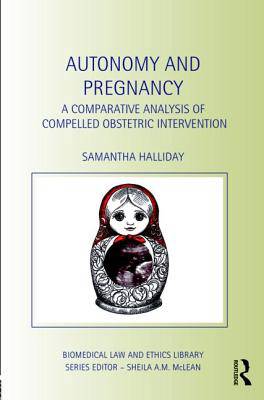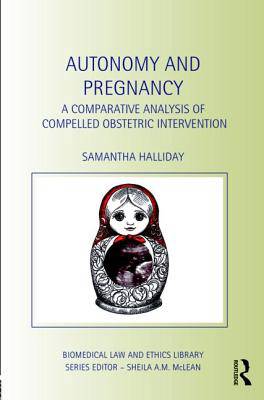
- Retrait gratuit dans votre magasin Club
- 7.000.000 titres dans notre catalogue
- Payer en toute sécurité
- Toujours un magasin près de chez vous
- Retrait gratuit dans votre magasin Club
- 7.000.0000 titres dans notre catalogue
- Payer en toute sécurité
- Toujours un magasin près de chez vous
Description
Technology has come to dominate the modern experience of pregnancy and childbirth, but instead of empowering pregnant women, technology has been used to identify the foetus as a second patient characterised as a distinct entity with its own needs and interests. Often, foetal and the woman's interests will be aligned, though in legal and medical discourses the two 'patients' are frequently framed as antagonists with conflicting interests.
This book focuses upon the permissibility of encroachment on the pregnant woman's autonomy in the interests of the foetus. Drawing on the law in England & Wales, the United States of America and Germany, Samantha Halliday focuses on the tension between a pregnant woman's autonomy and medical actions taken to protect the foetus, addressing circumstances in which courts have declared medical treatment lawful in the face of the pregnant woman's refusal of consent.
As a work which calls into question the understanding of autonomy in prenatal medical care, this book will be of great use and interest to students, researchers and practitioners in medical law, comparative law, bioethics, and human rights.
Spécifications
Parties prenantes
- Auteur(s) :
- Editeur:
Contenu
- Nombre de pages :
- 249
- Langue:
- Anglais
- Collection :
Caractéristiques
- EAN:
- 9781859419182
- Date de parution :
- 25-08-11
- Format:
- Livre relié
- Format numérique:
- Genaaid
- Dimensions :
- 157 mm x 234 mm
- Poids :
- 521 g

Les avis
Nous publions uniquement les avis qui respectent les conditions requises. Consultez nos conditions pour les avis.






